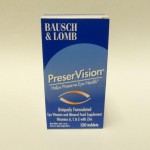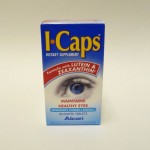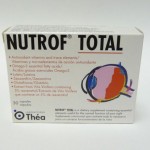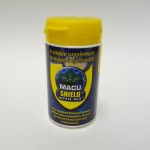Nutrition and the eye

In 2001, a large clinical trial was undertaken called the “Age-Related Eye Disease Study” (AREDS). This found that high levels of anti-oxidants and zinc significantly reduced the risk of Age related macular degeneration (AMD) and it’s associated vision loss.
Specially prepared vitamin and nutrient supplements (using the AREDS formula, or very similar) are increasingly used by people suffering the early stages of AMD and those with family history of the disease.
Good nutrition
Good nutrition is very important for both your general and eye health. Good nutrition helps our body to grow, repair wear and tear, function properly and protect against infection.
The vitamins used in the AREDS study can be found in many different fruits and vegetables such as:
- Green leafy vegetables – especially kale and spinach
- Broccoli
- Brussel sprouts
- Raw carrots
- Oranges
- Kiwis
- Grapefruit
- Dried apricots
- Tomatoes
- Peppers
- Green peas
- Green beans
They can also be found in nuts, seeds, dairy products and eggs.
Lutein and Zeaxanthin

Recently it has been suggested that two types of antioxidants, known as ‘carotenoids’, called Lutein and Zeaxanthin may also help with eye health. Some studies have found that people who have a good diet rich in carotenoids, particularly lutein and zeaxanthin, have a lower risk of developing AMD (Dry Macular Degeneration).
Lutein can be found in:
- kale
- spinach
- chard
- broccoli
- yellow peppers
- mango
- bilberries
Zeaxanthin can be found in:
- orange
- sweet peppers
- broccoli
- corn
- lettuce (not iceberg)
- spinach
- tangerines
- oranges
- eggs
Vitamin supplements

Unfortunately, it would be very hard to obtain the large quantity of vitamins used in the trial from your diet. Therefore some people who have AMD or have a family history of AMD may consider supplementation with vitamins and anti-oxidants. Such high dosages of vitamins and minerals might have possible side effects on the body.

As the vitamins and minerals used in the supplements are usually in quite high doses, it is important you discuss it with your doctor before taking them.
Smokers must not take these supplements as beta-carotene (in the supplements) increases the risk of lung cancer in current smokers.
Eye health
Many smaller scale studies have looked at how vitamins and minerals, both from food and in a vitamin supplement, can help eye health in general, and in particular AMD and cataracts. A number of these studies have looked specifically at the carotenoids Lutein and Zeaxanthin which have been particularly associated with healthy eyes.

Some of these studies have shown how certain vitamin and mineral supplements can have a positive effect on eyes and sight. Others have shown there to be no or little benefit. For this reason various organisations are calling for further, larger scale research.
As a result of these studies there are now a number of different supplements for eye health on the market. There is still divided medical opinion on the use of supplements for both eye health and for preventing, or slowing down, the progression of AMD and cataracts in particular.
The general consensus of opinion is that a good balanced diet that includes sufficient fresh fruits and vegetables (particularly Kale and Spinach) there should be no need to use supplements.
However, research has shown that many people in the UK do not get enough vitamins and minerals from their diet. Some people might consider taking a supplement for their general and eye health.
Experts agree that taking supplements is not a substitute for a healthy diet.
Key points:
- Protect your eyes from sunlight.
- Use good quality sunglasses, ie those that have the ‘CE’ mark, which means they meet the European Union Quality Standards.
- Discuss improving your diet or taking vitamin supplements with your GP if you believe your diet is inadequate.
- The biggest avoidable risk is smoking.
- Have your eyes tested at least every two years and more frequently if necessary.
